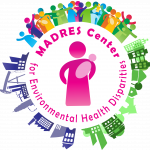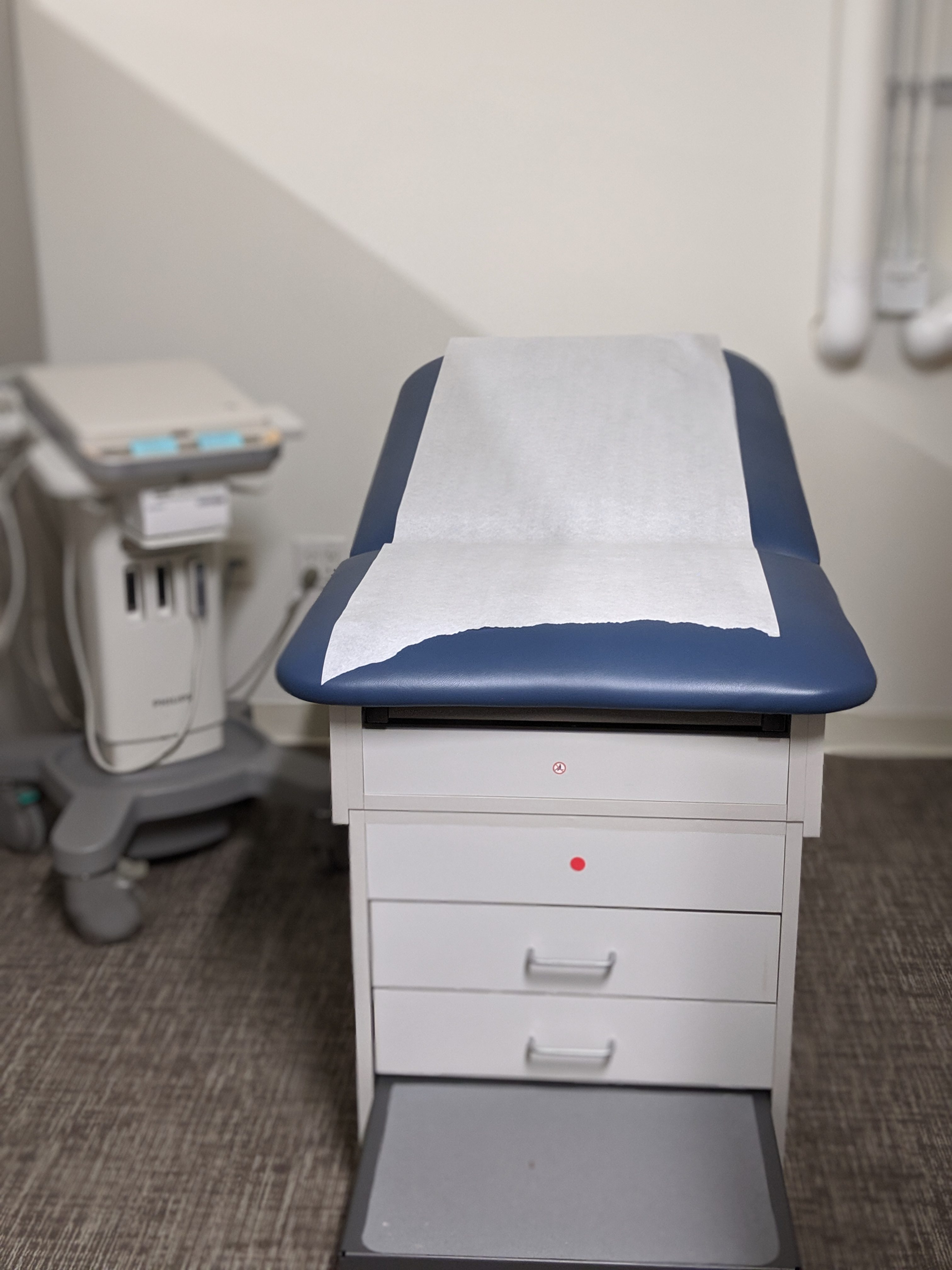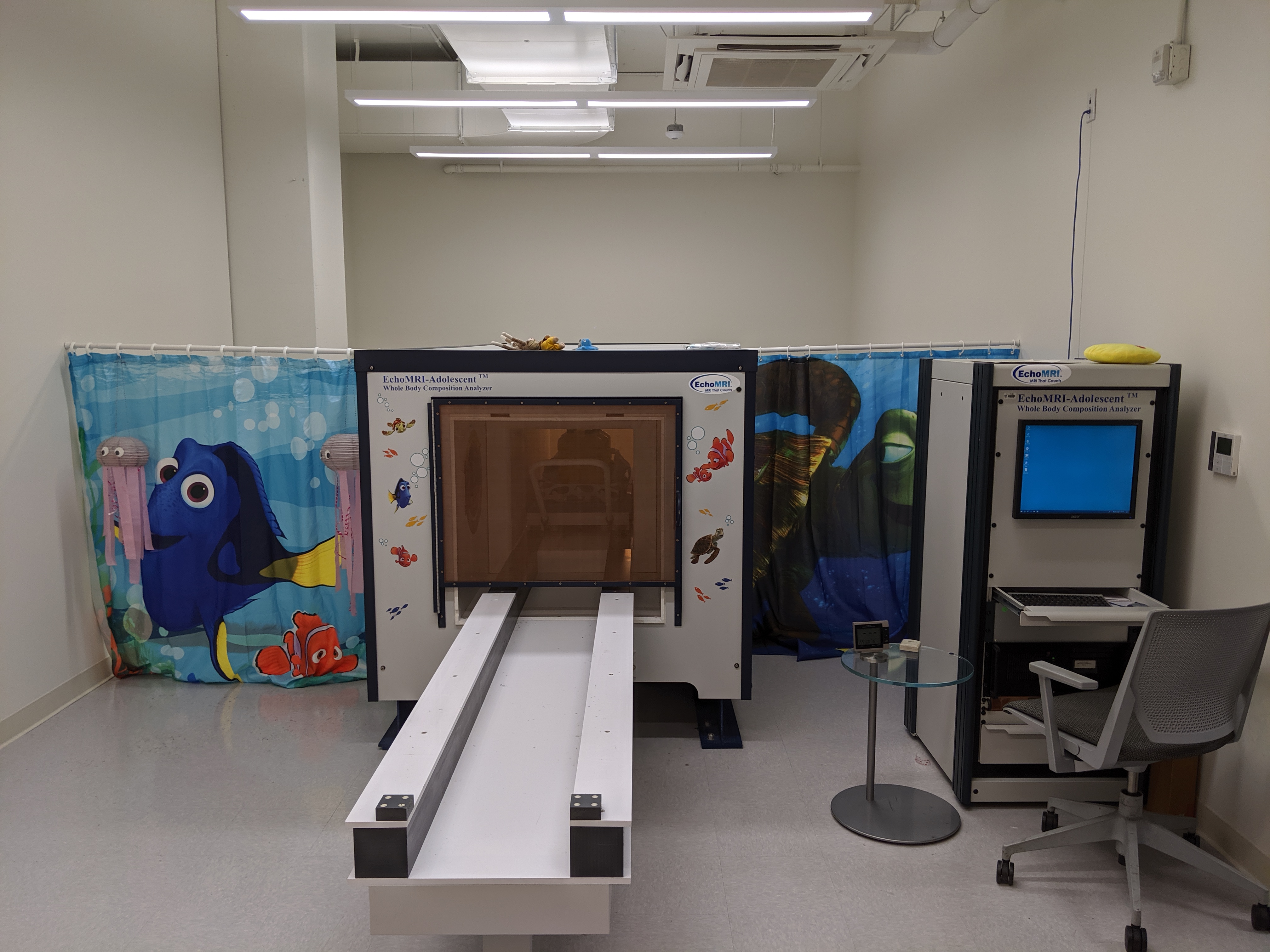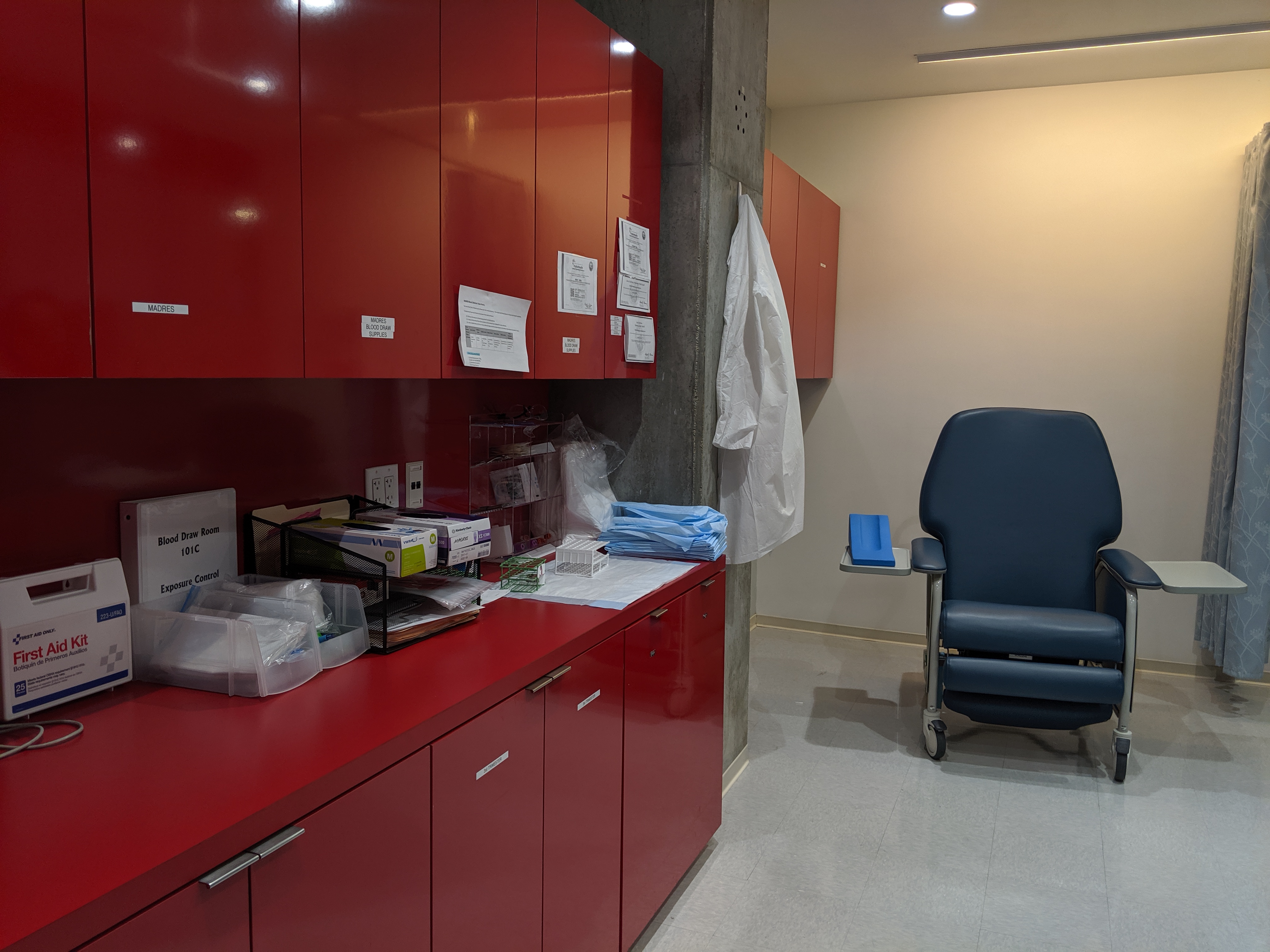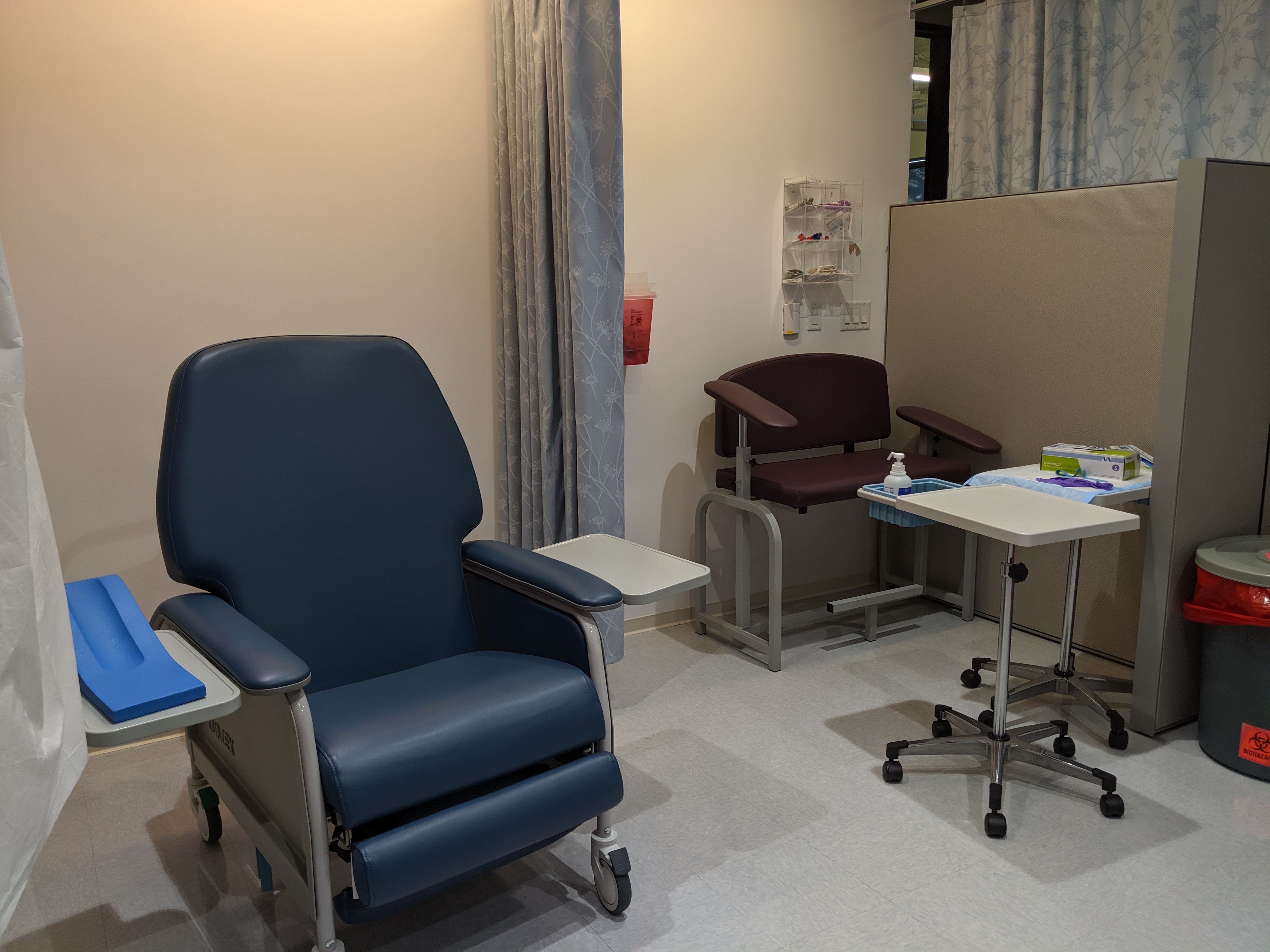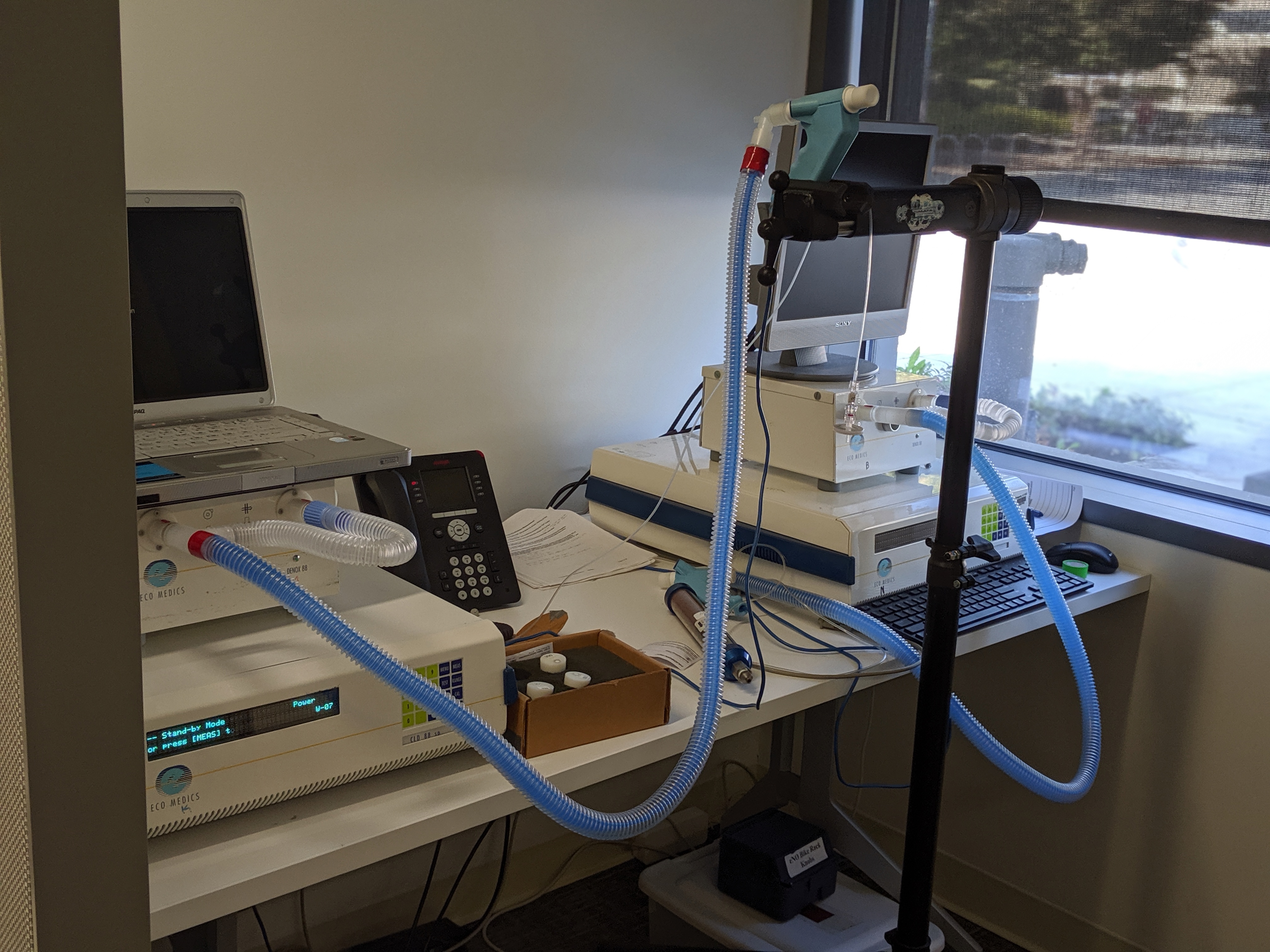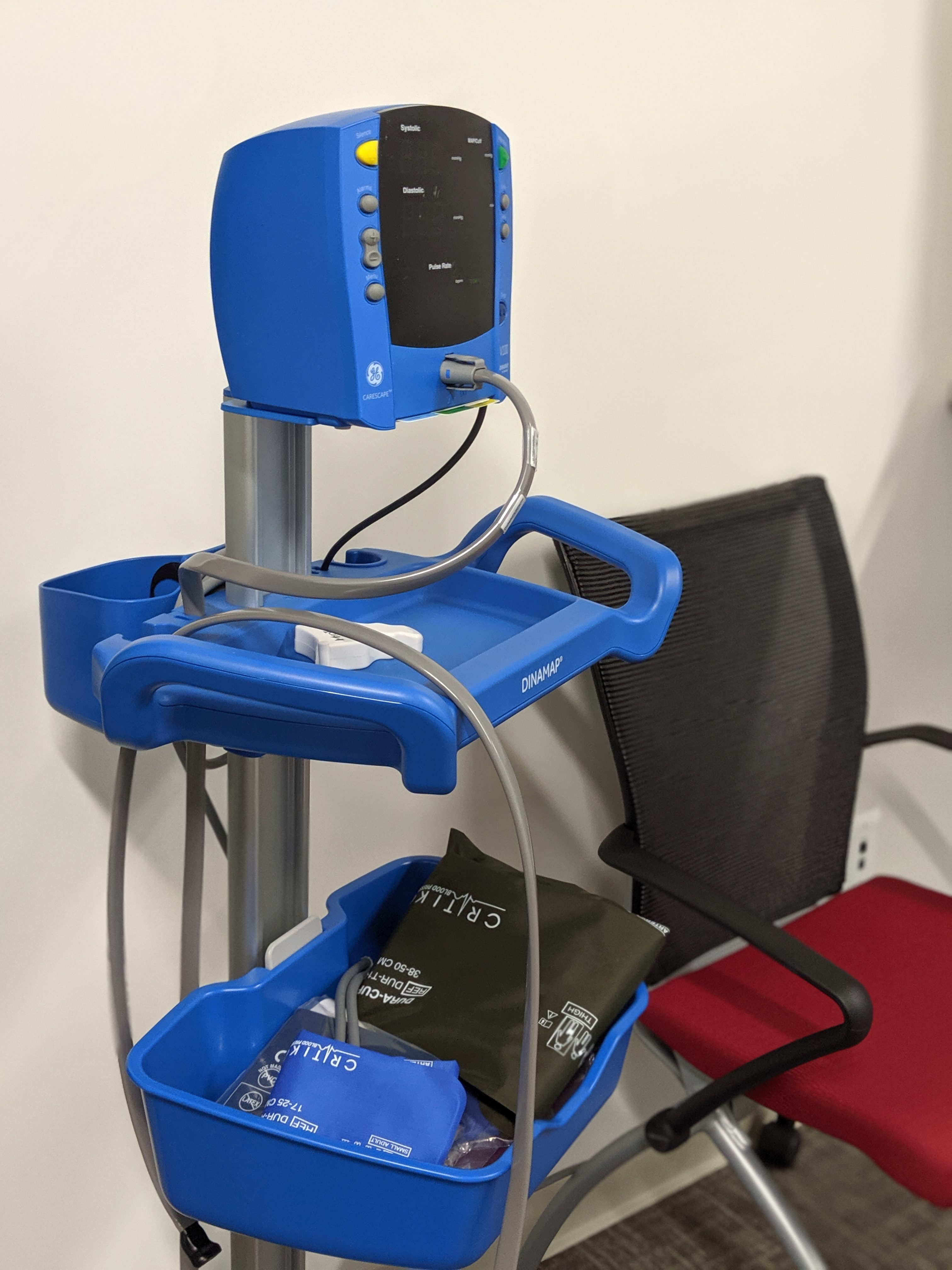CORES
The MADRES Center for Environmental Health Disparities is supported by various cores. These cores all work together to support the Center’s research and widely disseminate findings. In the first cycle of the MADRES Center, there were four Cores: a Population Core, an Exposure Core, a Community Engagement & Dissemination Core, and an Administrative Core with a robust Career Development Program. As the MADRES Center evolved, the cores needed to support its work also evolved. During the second cycle of the MADRES Center, the Administrative Core and the Community Engagement & Dissemination Core continue to support the MADRES Center and a new Investigator Development Core was created. More information on each is provided below.
Interaction of MADRES Center Cores and Research

Current Cores
The Administrative Core coordinates activities across the MADRES Center and supports scientific integration and community engagement. Its overall goal is to facilitate multidisciplinary dialogue among clinical, social, and public health scientists and community outreach professionals to enhance the Center’s research and outreach programs in environmental health disparities.
The MADRES Community Engagement and Dissemination Core serves as a bridge between the MADRES Center and community stakeholders through both the dissemination of research findings back to the community and the incorporation of community knowledge into research priorities. For more information, see the Community Engagement page.
The Investigator Development Core (IDC) aims to increase diversity in the next generation of independent scientists and research staff in environmental health disparities research. The IDC supports two main programs to accomplish this goal: 1) a pilot projects program to provide seed funding to early stage investigators from underrepresented backgrounds interested in health disparities research, and 2) an internship program geared toward undergraduate and master’s level students considering future careers in environmental health disparities and public health.
Retired Cores (Active 2015-2020)
The Exposure Core facilitated the effective and efficient use of cutting-edge exposure assessment tools and methods across the MADRES Center by providing technical support, training, and mentorship. The Exposure Core’s capabilities included geographical information systems (GIS), global positioning system (GPS) tracking, geocoding, PM2.5 exposure monitoring, spatial analysis, and exposure assessment.
The Population Core provided an efficient infrastructure to collect and maintain health data from the MADRES cohort of pregnant women and their infants. The Population Core was responsible for enrolling pregnant women, collecting all health data before and after birth, establishing a unified system for participant tracking, and following up with participants to maintain contact. Establishing and maintaining a strong and engaged cohort of participants is essential to the success of the MADRES Center and its research.
